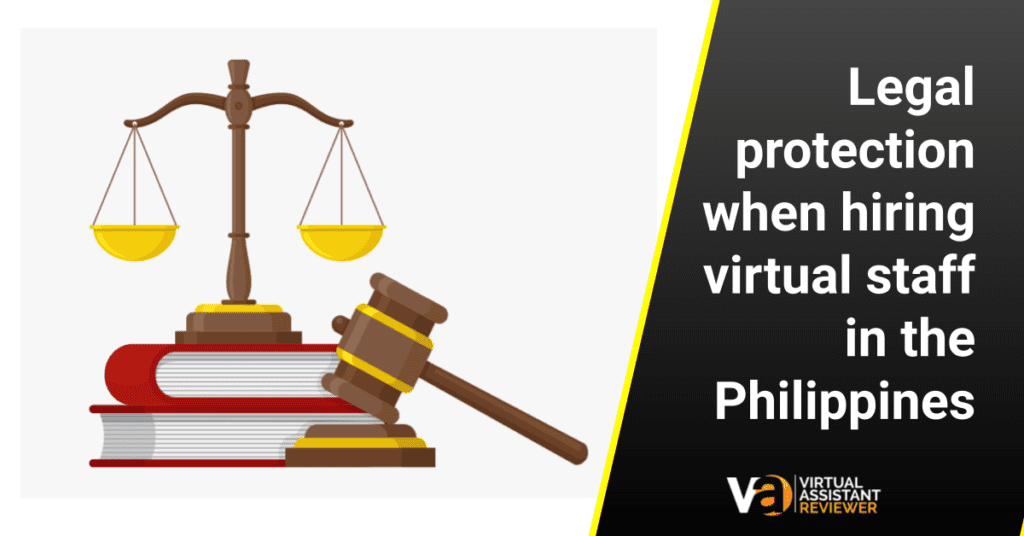
If you’re exploring plans on hiring a programmer or a social media expert from the Philippines to work for you remotely, the options are plenty. Due to the fast-rising popularity of the “gig economy” and the changing preference and attitude of the current generation towards the way they work, you’ll quickly find experienced remote workers in the Philippines.
But since you will be hiring workers from another jurisdiction, the legal arrangement and the contractual agreement are a bit tricky. Typically, you’ll employ online workers as independent contractors.
However, the country of the employer and the contractor may have different labor laws and statutes governing contracts and agreements. As such, a prudent company or businessman needs to put careful thought into the hiring process.
Moreover, you must make sure you are protected in case of contractual breach and disagreement. Lastly, you must also pay particular attention to protecting your data, information, and intellectual properties.
Hiring remote workers in the Philippines

Hiring remote workers as employees ensure long-term relationship and loyalty. Many workers in the Philippines have a particular bias in favor of work that offers stability and payment of benefits.
As employees, remote workers in the Philippines are entitled to the stipulations mandated under the Labor Code, e.g., overtime pay and holiday premiums, the so-called 13th-month pay, and government contributions.
On the other hand, hiring independent contractors from the Philippines gives you several advantages. Since there is no employer-employee relationship between you and the Philippine workers, you don’t have to worry about government-mandated contributions like social security, housing, and healthcare benefits.
What you only need to pay would be the agreed compensation as provided under your agreement. But as simple as your monetary obligation, the same cannot be said with the legal relationship between you and your foreign remote worker.
You see, as an unlicensed foreign entity or individual hiring a remote worker who lives and works in the Philippines, you would find it impossible to enforce your rights in the Philippines in cases of contractual breach and violation of your rights.
Under the newly amended Corporation Code of the Philippines, unlicensed corporations who do business in the Philippines, e.g., engaging contractors’ services, cannot sue before the local courts. In other words, whether you hire them as employees or contractors, you’ll be in a precarious situation should there be a need for you to enforce contracts.
Hire through a Philippine-registered entity

To protect yourself and your business and allow for potential enforcement of your right, I advise my clients to hire through Philippine entities. It means the remote workers you’ve hired for long-term positions are hired via a Philippine entity, while services are being rendered for you remotely.
However, registering a domestic company or a business is a bit complicated in the Philippines. It is especially true if you don’t have any presence in the country. Moreover, forming an entity would run afoul of your original goal why you’ve decided remote workers in the Philippines.
So the easier and more convenient option would be to hire workers through various Philippine-based recruitment companies. You can also avail of services from service provides that have already employed many workers of various skills for a fixed monthly billing.
In that way, the Philippine companies serve as intermediaries that can enforce your right in case the workers stole your data or information, violated non-disclosure agreements, or generally reneged from their contractual obligation.
Also, check our complete guide on outsourcing to the Philippines.
This article is written for educational and general information purposes only and does not constitute specific legal advice. There is no attorney-client relationship between you and the publisher or owner of this website. This article should not be used as a substitute for competent legal advice from a licensed professional attorney in your state.














